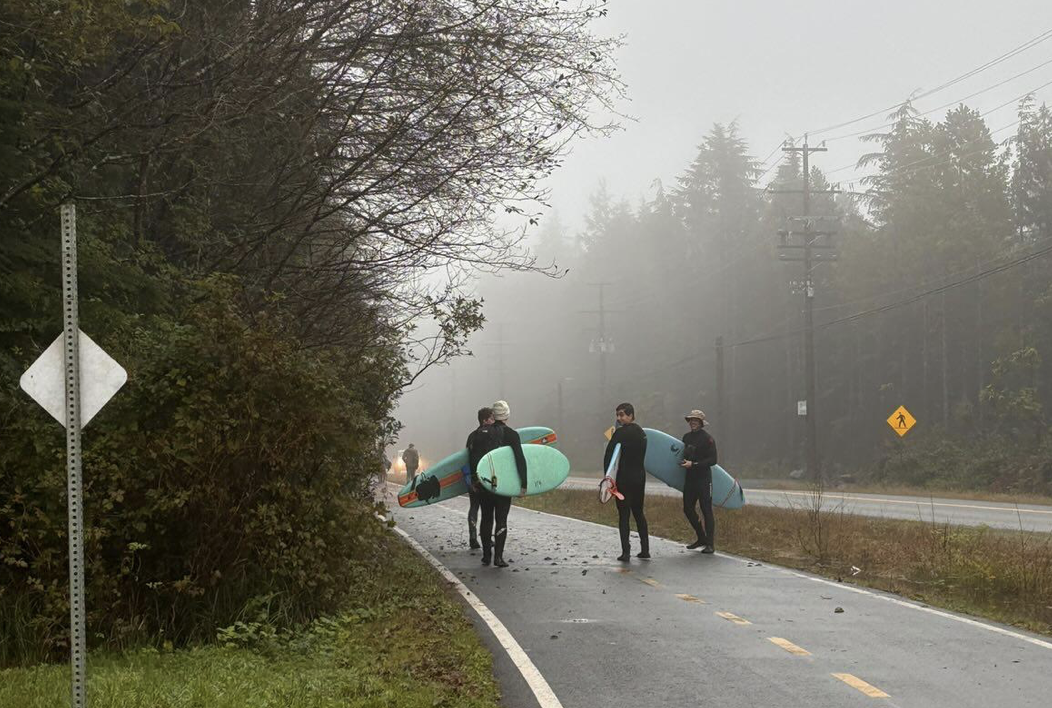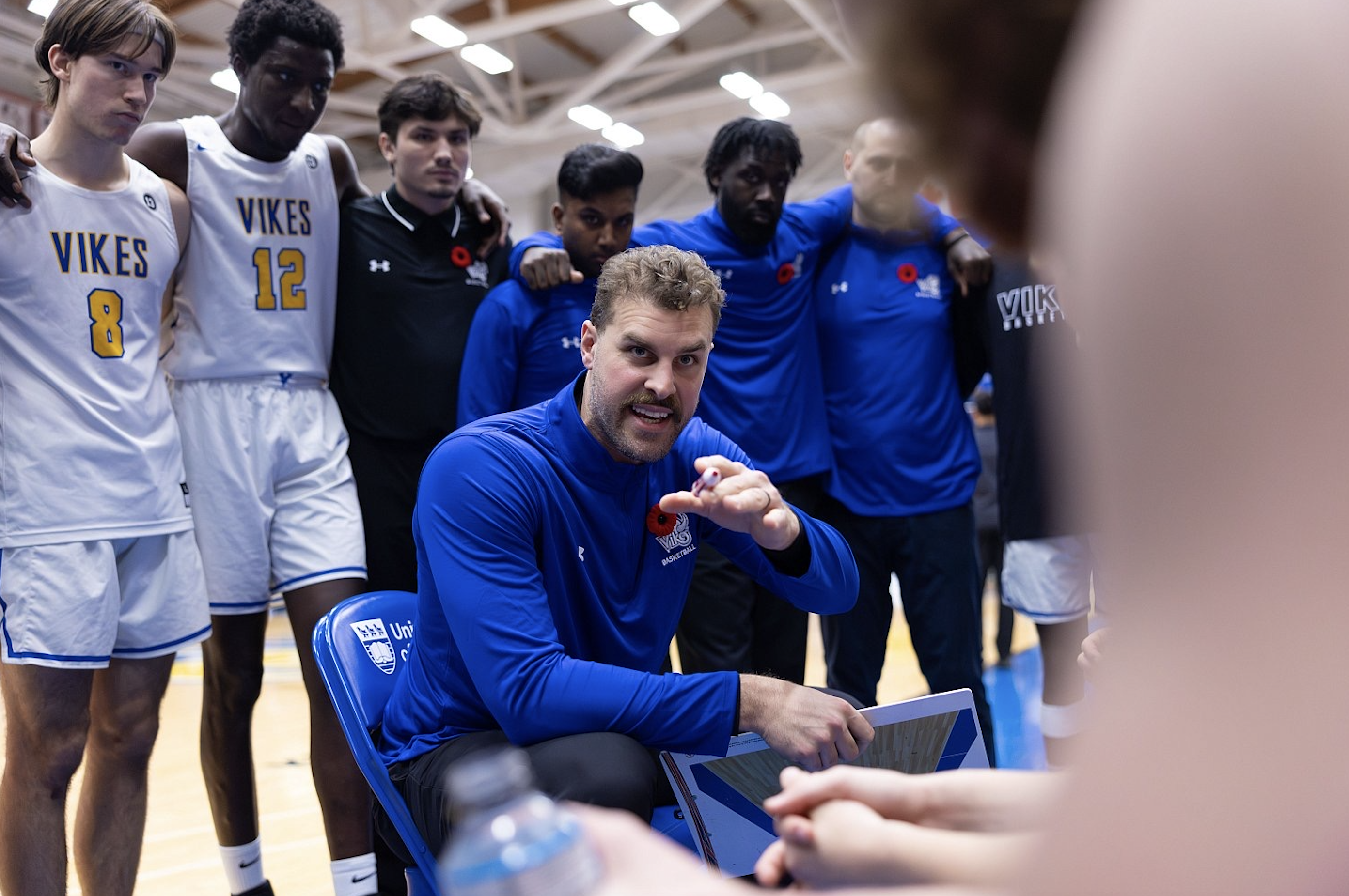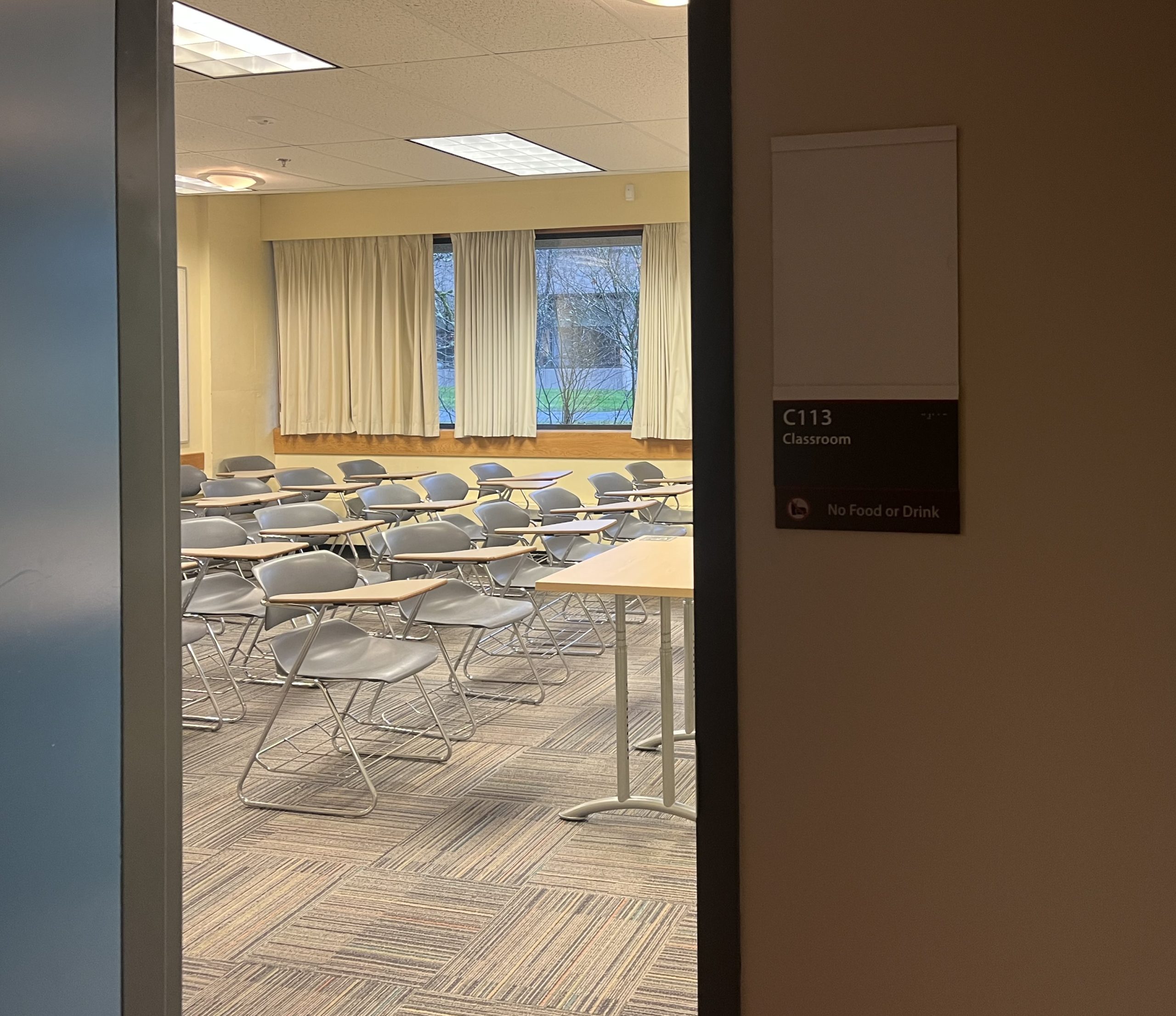UVic students and volunteers engage with diverse community perspectives on
ecological breakdown

The idea to launch climate cafes in Victoria began with discussions between Severin Odland, a UVic graduate student in environmental psychology, his partner, and their friends. They realized they were all carrying around anxiety, grief, and depression about the ever-intensifying effects of humans on our environment.
Odland realized they lacked a designated space to engage with how the environmental crisis made them feel. After coming across an article on climate cafes in the Guardian, Odland saw the perfect, easily replicable model that he had been searching for.
Odland and his peers are not alone in their feelings about the environment. In the last decade, the term climate anxiety or eco-anxiety has emerged within psychological disciplines to describe the negative effects of climate change on mental wellbeing. A recent worldwide study found that as many as 84 per cent of the surveyed people aged 16–25 expressed worry about the environment, and 50 per cent reported sadness, anxiety, powerlessness, and anger over current and future threats to our planet.
Climate cafes are an initiative to relieve these feelings by sharing concerns in a supportive environment, which in turn can also help to alleviate feelings of isolation or helplessness. Odland observed these negative feelings among his peers but noted that the problem extends beyond his immediate circle. Climate change is a universal issue, whether its effects are direct or indirect. While the first climate cafe is believed to have originated in 2015 in Aberdeen, Scotland, no one “owns” the climate cafe concept and it has been adopted by groups around the world.
Odland and fellow students began hosting twice-weekly climate cafes in April, on UVic’s campus and at the Dock, a co-working space in downtown Victoria. A small team of volunteers from a variety of disciplines facilitated the cafes. According to Odland, the cafes were attended by many people in the community from different backgrounds and age groups.
Attendees included former climate activists, farmers, engineers, teenagers with their parents, and elderly residents.
“It’s conversations that are really interesting, and hearing how different people come to the issue and think about it from their backgrounds has been very educational for myself personally, and the other facilitators,” said Odland in an interview.
Despite the shared proximity to ecological issues, it is normal for attendees to feel overwhelmed or apprehensive when coming to the cafes.
“We play music from our laptops [for] an ambient background, we always bring a kettle, a tea selection and a baked good, we sit around in a circle. The idea is just to make it as casual and comfortable of an atmosphere as possible,” said Odland.
The tools for conversation are perhaps so effective because they are age-old and, in many ways, very intuitive. Facilitators invite discussion but never make people go in turns or force participation, creating an open discussion space. “We have a little plush animal that we use as the speaking token so that when you are speaking, everyone is listening,” said Odland.
Odland reflected on the need for low-pressure discussions to engage people with large-scale ecological issues.
“Climate change is something that affects everybody and … regardless of your age or your political activity, is something that I think we are all being confronted with,” said Odland. “For a lot of people, I think that it’s exactly these overwhelming emotional issues that prevent people from engaging with climate change.”
The cafes are not organized climate debates or political activist groups. While naturally the conversations may turn to sustainability and climate justice, the focus is more around sharing emotional and personal experience.
According to climateandmind.org, those who enter the cafes should leave feeling empowered and excited, generating hope for the future. Participants are able to work through frustrations and focus on coping mechanisms.
Reflecting on the benefits of the cafes that he observed through their first cycle, Odland remarked, “The relief and I think the support and solidarity that comes from just talking about it with other people who are familiar with what you are saying … feeling similar things, the impact of that cannot be overstated.”
Even personally, Odland feels that it has been beneficial to connect with the community around these difficult topics and work through frustrations.
“Participating in eight climate cafes really allowed me to discharge pent-up thoughts, and it made it so much easier and more accessible to talk about [climate change],” said Odland.
“People are coming from totally different places, totally different knowledge bases, totally different news sources, totally different ideas, and ideological backgrounds that they bring in with them. It’s been so refreshing and educational to see this variety of perspectives.”
Odland emphasizes that regardless of your background or history with activism, all individuals are welcome to join the space and can be part of the conversation. “In the climate cafe, all experiences are valid.”
The facilitators anticipate that the cafes will continue, given the positive community response to the six-week series. Currently the sessions are on pause, however, Odland said the group plans to host more meetings later in the summer. For news and upcoming events, readers should follow the group on Instagram @victoriaclimatecafe.








